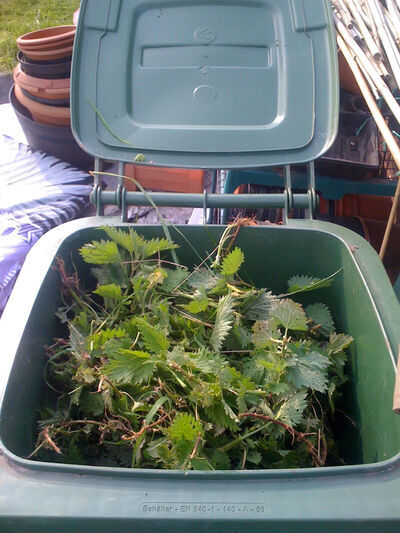Organic Gardening Secrets Nettle Fertilizer and Nettle Insecticide
Two amazing resources that every organic farmer should have in their toolbox are nettle fertilizer and nettle pesticide. They offer several advantages for your yard and are not only simple to create but also eco-friendly. The importance of these nettle-based remedies, their production, and their efficient application will all be covered in this essay.
Nettle Fertilizer’s Power
- Nettle fertilizer, sometimes referred to as nettle tea or nettle liquid fertilizer, is a nutrient-rich natural plant feed. Let’s find out why it’s so crucial:
- Nutrient-Rich: Nettles are a great source of nitrogen, potassium, phosphorus, and trace minerals, all of which are vital for plant growth and development.
- Enhances Soil Quality: You can replenish your garden’s soil with organic matter by applying nettle fertilizer. This enhances nutrient availability, water retention, and soil structure.
- Natural Pest Deterrent: Some garden pests can be successfully repelled by the potent smell of nettle fertilizer. This implies that you can maintain the safety and health of your garden while lowering the need for chemical pesticides.
- Cost-effective: By eliminating the need for pricey store-bought fertilizers, making your own nettle fertilizer not only benefits your garden but also saves you money.
How to Prepare Fertilizer with Nettle
- The process of making nettle fertilizer is easy. Here is a detailed guide:
Things You’ll Need:
- Fresh nettle leaves (use gloves, please)
- A big bucket or container
- Water
Directions:
- Gather nettle leaves: Gather fresh nettle leaves throughout the growth season, which is often spring or early summer. Don’t forget to wear gloves to prevent stings.
- Fill a container: Pour water into a sizable bucket or container. The number of nettle leaves you have will determine how much water you need.
- Nettle leaves should be added by putting them in the water container. Use about one part water to ten parts nettle leaves. Use 10 liters of water, for instance, if you have a gallon of nettle leaves.
- Soak the leaves: Give the nettle leaves two to three weeks to steep in the water. To aerate the mixture, stir it every several days.
- Strain and use: Pour the liquid into a different container after the steeping time. Your nettle fertilizer is this liquid. Before applying it to your plants, you can further dilute it with water (about 1 part nettle fertilizer to 10 parts water).
- An excellent natural way to control garden pests is to use nettle insecticide or nettle-based pest spray. Let’s examine its importance:
- Eco-friendly: Nettle insecticide is a chemical-free, natural substitute for synthetic pesticides. Utilizing it lessens damage to the ecosystem as a whole and beneficial insects.
- Low Cost: By eliminating the need for pricey commercial pesticides, making your own nettle insecticide not only benefits the environment but also saves you money.
- Effective Pest Control: Aphids, caterpillars, and mites are just a few of the common garden pests that nettle pesticide may help you manage.
How Nettle Insecticide Is Made
- The process of making nettle insecticide is simple. To help you get started, here is a simple guide:
Things You’ll Need:
- Fresh nettle leaves (use gloves, please)
- Water
- Non-toxic, organic soap
Directions:
- Gather nettle leaves: During the growth season, collect fresh nettle leaves, just like you would with nettle fertilizer. Do not forget to wear gloves.
- Pour water into a container: pour water into a container. Mix about one part nettle leaves with five parts water. Use five quarts of water, for instance, if you have one quart of nettle leaves.
- Add the nettle leaves: Soak the leaves in the water for approximately twenty-four hours.
- Pour the liquid through a strainer into a spray bottle following the soaking time.
- Add soap: To the mixture, add a few drops of organic, non-toxic soap. The soap aids in the solution’s ability to stick to the plants and bugs.
- Spray on plants: Target the pests by directly applying the nettle pesticide to the afflicted plants. Be sure to spray the leaves’ upper and lower surfaces. As necessary, repeat the procedure, usually every seven to ten days.
For gardeners who value organic and ecological methods, nettle fertilizer and nettle pesticide are indispensable supplies. From improving soil quality and encouraging plant development to efficiently controlling garden pests, these do-it-yourself remedies have several advantages. You may lessen your need on chemical fertilizers and insecticides and make big progress toward a healthier, more fruitful garden by learning how to create and use nettle-based products.

